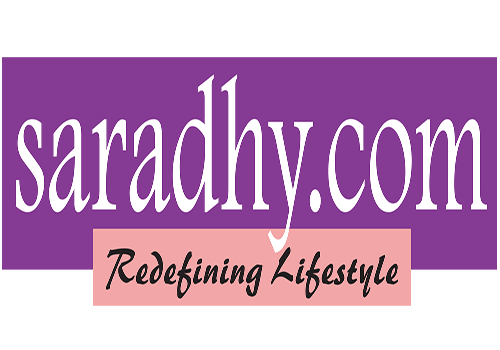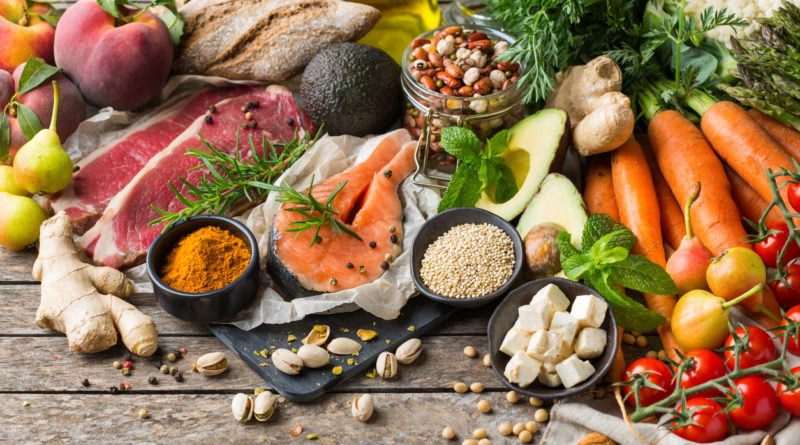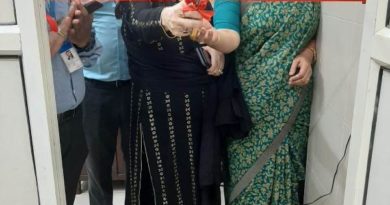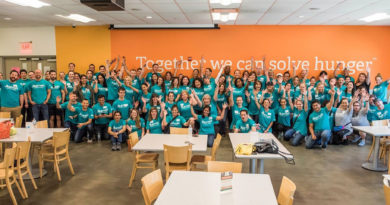Physical and mental development relates to the quality of food intake
by V. Krishna Deepika, Clinical Dietician, Apollo Cradle, Kondapur, Hyderabad
The dietary guidelines states that nutritional needs should be met primarily through diet. National Nutrition Week is to make people aware of Nutrition and its importance for good health and well being of human body. Government of India has decided to celebrate September as National Nutrition Month.
Daily diet should include complex carbohydrates like whole grains, lean proteins, fruits, vegetables, low fat dairy and healthy fats. Nutrition not only helps in growth but also makes the immune system strong. A poor diet may increase the risk of diet related conditions like chronic diseases, obesity, poor immunity, decrease in life span and low energy. Human body requires micronutrients and macro nutrients as well as essential vitamins which are not synthesised by its own. Lack of calories, protein and nutrients in diet can cause undernutrition or malnutrition. Good nutrition combined with physical activity can help maintain healthy weight and build good immune system.
⦁ What is the preferable option of nutrients Natural vs Supplements?
Nutrients from food are always better than supplements, unless deficient. Supplements can fill the nutrient gap where as natural food offers benefits over dietary supplements.
⦁ Choose your food wisely?
Keep watch on labels. Transfats, Artificial dyes, preservatives, processed food if found, avoid picking up. Ignore sugary, oily, fried, and ready to eat food which are high in calorie, increasing the risk of obesity 60%. Choose fresh fruits and healthy nuts rather than preserved items containing sugar or salt.
⦁ How to plan a Healthy meal?
Simple and nutritious meal should be chosen in which time and energy matters. Healthy meal must give maximum nutrients meeting individual likes and dislikes. Every meal should give variety and satiety.
⦁ Does Prior preparation of a grocery list help?
Preparing a list prior shopping saves time and helps to choose healthy food items. Shopping on appetite can lead to choose unhealthy food items. Avoid ready to eat, processed, preserved foods.
⦁ How to make balanced plate?
Balanced plate should contain lean proteins, calories, vitamins, minerals, fats, and fiber. Human body relies on nutrients of all the above categories. Variety also helps in meeting nutritional requirement. Use salt and sugar in moderation. Diet should be low in fat.
Dietary supplements are being advised by the medical advisor as per the deficiency, low intake, with a medical condition. Day to day lifestyle made artificial supplements short way to opt. Excess intake of water soluble supplements gets eliminated through urine but fat soluble vitamins like vitamin D and vitamin A may build up in the system which can lead to toxicity.
Various supplements that increase immunity have come into notice during the pandemic. Unapproved supplements and products such as capsules, pills, powders by FDA (food and drug administration) as a prevention to corona virus can lead to dangerous effects. Replacing the supplements with natural probiotics can help improve gut health. Natural antioxidants and polyphenols help reduce inflammation. No specific food, supplement or any health product will prevent from catching corona virus.
Sometimes a simple multivitamin or mineral supplement is suggested to fill nutrient gap but they are not a substitute to natural food. The risk of exposing to a disease/ aliment can be reduced with the good intake of nutrients from natural food. Dietician can help achieve balance between nutrients from natural food and artificial supplements.
Natural Food Alternatives to Artificial Supplements
⦁ Vitamin C: Ascorbic acid plays a crucial role in building immunity. It acts as a powerful antioxidant and protects body against severe infections like acute respiratory distress and common cold. As per ICMR, RDA of vitamin c is 40mg/day. High doses of vitamin c has shown a significant improvement in the treatment of corona positive patients, in which studies are still going on. The amount of vitamin C present in 100grams of Amla(600mg), Guava(212mg), lemon(39mg), papaya(57mg), drumstick leaves (220mg), cabbage(124mg), coriander leaves(135mg), geen chillies(111mg).
⦁ Vitamin D: RDA for vitamin D is 400 IU per day. Vitamin D plays an important role in maintenance of optimal health. High doses of vitamin D are recommended for deficient. The most inexpensive way of getting vitamin D is exposure to sunlight. Other sources are egg yolk (218 IU), cheese(24 IU), fortified foods like orange juice and cereals contain (55-130 IU).
⦁ Magnesium (Mg) : RDA for Magnesium is 350 micrograms/day. Magnesium promotes positive mood. Deficiency can lead to decreased serotonin production, which increases stress in the body. Nuts, seeds, whole grains and low fat dairy are some of the good sources of magnesium. cereals, pulses and nuts contain 40 – 200 mg magnesium per 100grams. Rajkeera seeds( 351mg), almonds(274mg).
⦁ Zinc : As per RDA 12mg/day of zinc is required. Zinc deficiency makes body more susceptible to respiratory infections. The best dietary sources of zinc are cashews(5.6mg), peanuts(3.3mg), pumpkin seeds(7.9mg), flaxseeds(4mg) oats( 3mg) and 3 medium oysters(15mg).
⦁ Omega 3 fatty acids: Helps to reduce inflammation. Instead of supplements opt natural sources. Rich sources of omega 3 fatty acids include green leafy vegetables, walnuts, soya bean, flax seeds and chia seeds.
⦁ Antioxidants: Helps neutralize free radicals which are highly reactive in medical conditions causing cell damage. Rich sources of antioxidant phytochemicals are ginger, garlic, turmeric, oats, soyabean, black pepper, clove.
What we are is, what we eat. Eat a variety of nutritious foods every day and enjoy healthful eating at school, work and home.




